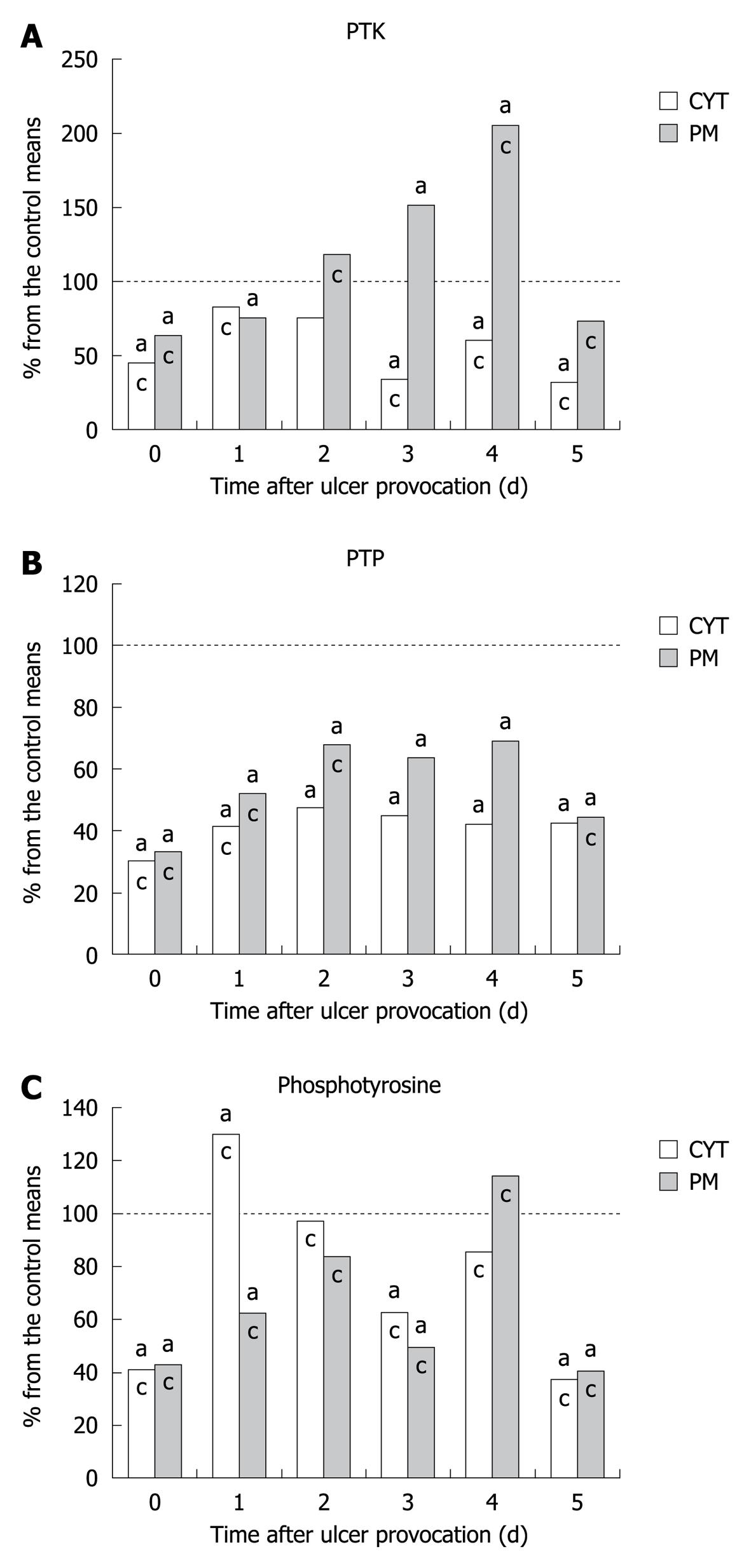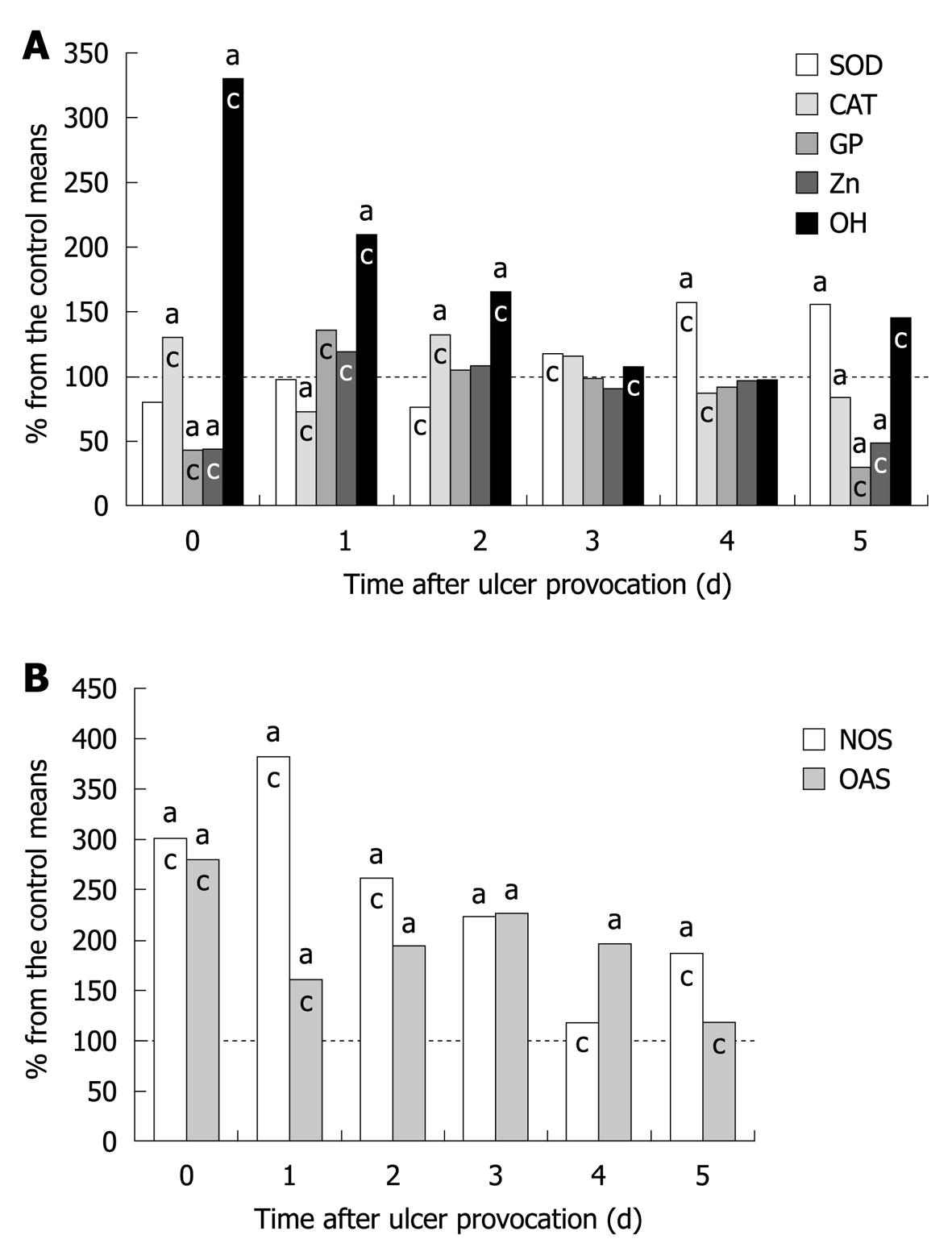Copyright
©2010 Baishideng Publishing Group Co.
World J Biol Chem. Nov 26, 2010; 1(11): 338-347
Published online Nov 26, 2010. doi: 10.4331/wjbc.v1.i11.338
Published online Nov 26, 2010. doi: 10.4331/wjbc.v1.i11.338
Figure 1 Gastric protein tyrosine kinase and protein tyrosine phosphatase activity and phosphotyrosine content after cold-stress-induced lesioning (% change from the control level).
A, B: Protein tyrosine kinase (PTK) and protein tyrosine phosphatase (PTP) were quantified in plasma membrane (PM) and cytosolic (CYT) fractions from gastric mucosa from control rats and immediately after lesioning (day 0) or on consecutive days after lesioning (days 1-5); C: Phosphotyrosine content was quantified in proteins from plasma membrane and cytosolic fractions from gastric mucosa from control rats and immediately after lesioning (day 0) or on consecutive days after lesioning (days 1-5). aP < 0.05 vs the control group; cP < 0.05 vs the previous timepoint.
Figure 2 Activities of superoxide dismutase, catalase, glutathione peroxidase, zinc, hydroxyl radical content (A), nitric oxide synthase and 2’,5’-oligoadenylate synthetase (B) after cold-stress-induced lesioning (% change from the control level).
Activities of antioxidant enzymes, hydroxyl radical and zinc content were quantified in gastric mucosa cells from control rats and immediately after lesioning (day 0) or on consecutive days after lesioning (days 1-5). aP < 0.05 vs the control group; cP < 0.05 vs the previous timepoint. SOD: Superoxide dismutase; CAT: Catalase; GP: Glutathione peroxidase; Zn: Zinc; OH: Hydroxyl radical; NOS: Nitric oxide synthase; OAS: 2’,5’-oligoadenylate synthetase.
- Citation: Bogdanova OV, Kot LI, Lavrova KV, Bogdanov VB, Sloan EK, Beregova TV, Ostapchenko LI. Modulation of protein tyrosine phosphorylation in gastric mucosa during re-epithelization processes. World J Biol Chem 2010; 1(11): 338-347
- URL: https://www.wjgnet.com/1949-8454/full/v1/i11/338.htm
- DOI: https://dx.doi.org/10.4331/wjbc.v1.i11.338










